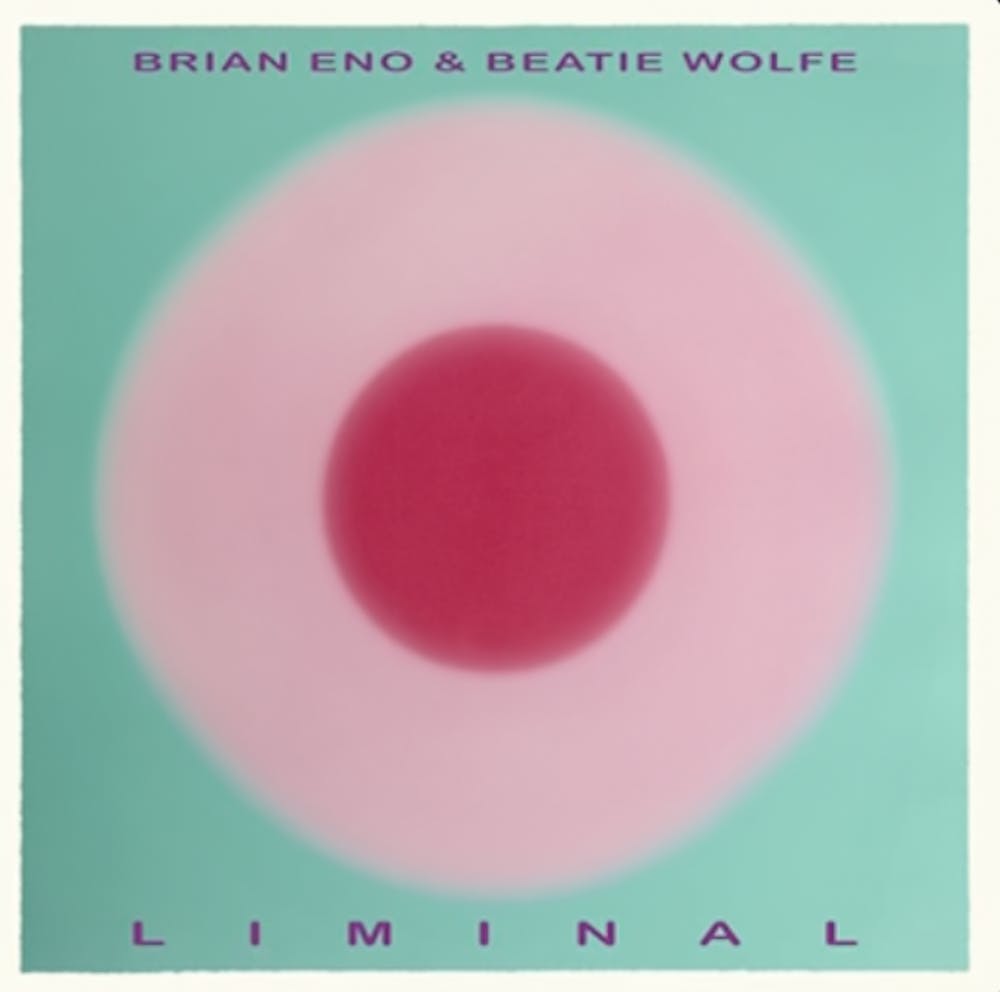By Mahnoosh Arsalan
Correspondent
Brian Eno, a world-renowned music producer, singer and songwriter, has released his third studio album with singer-composer Beatie Wolfe titled “Liminal,” the third and final album in their trilogy, preceded by the albums “Lateral” and “Luminal,” also released in 2025.
Eno is known for his collaborations with icons like U2, Talking Heads and David Bowie, producing some of their finest works. He is a seven-time Grammy Award winner and 14-time nominee.
Wolfe is an extremely talented and unique, eccentric artist. She has produced all of her own albums, as well as created the first physical copy of an album containing a tag to digitally connect it.
She also created an album titled “Raw Space” in 2017 that was the first 360-degree augmented reality live album, in which the album was live-streamed with 3D visuals that immersed the listener in the music, completely altering the average listening experience.
The duo released “Lateral” and “Luminal” both on June 6 this year, with “Liminal” coming out just a few weeks ago. These three albums combine ambient sound-wave sonics with radiant yet visceral noise to give listeners a calming, almost rebirthing listening experience.
The trilogy has been described as songs mixed with non-songs. Most songs in the trilogy sound about the same, yet each represents a different kind of serenity. “Liminal” feels like the calm at the end of the summer.
There are two songs on Eno and Wolfe’s latest album that sound nothing like the rest of their music, which are tracks six and nine, titled “Flower Women” and “Laundry Room.”
“Flower Women” feels haunting and almost perturbing. Something about it is extremely eerie and reminiscent of the Ari Aster film “Midsommar” — not just because the song is titled “Flower Women,” but because the song felt very fitting for a thriller soundtrack.
“Laundry Room” was extremely strange and, honestly, unsettling. I still enjoyed how wildly different it was from any work Eno and Wolfe have done together in the past, not just sonically, but lyrically as well. Even the pacing of the song was like nothing I’ve heard before. This track also fits well for a thriller soundtrack, due to its offbeat, peculiar energy and dark tone.
The final track, “Shudder Like Crows,” is a strong conclusion to the album, encapsulating the overall mood of the album and potentially closing the chapter of Eno and Wolfe’s collaboration. This track is also sonically different from the rest of their previous works, but still similar enough to summarize the history of their art.
Eno has proved time and again how he is superior in the world of music production. Each song in this album and in the trilogy has been thoughtfully carried out, staying true to every feeling he wants to convey. Though this album is vastly different from anything he’s done before, especially in his collaborations with other artists, he still perseveres in the constant and intense changes in the music industry, proving that he withstands the evolution of music and sound.







